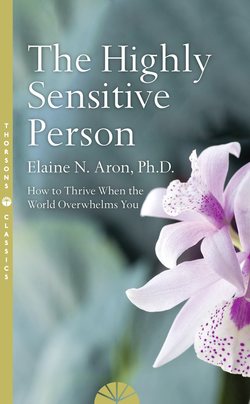Читать книгу The Highly Sensitive Person - Elaine N. Aron - Страница 48
You and Your Caretaker
ОглавлениеAbout half or a little more than half of all infants are raised by adequate parents, and thus become what is called “securely attached” children. The term is taken from biology. All newborn primates hang on to Mom, and most moms want their infants to hang on tight, securely.
As the infant gets a little older, when feeling safe he or she can begin to explore and try to do things independently. The mother will feel pleased about that—watchful and ready if there is trouble but otherwise glad that her little one is growing up. But there will still be a kind of invisible attachment. The moment there is danger, their bodies will reunite and become attached again. Secure.
Now and then, for various reasons usually having to do with how the mother or father was raised, a primary caretaker may give one of two other messages, creating an insecure attachment. One is that the world is so awful, or the caretaker is so preoccupied or vulnerable, that the infant must hang on very, very tight. The child does not dare to explore very much. Maybe the caretaker does not want exploring or would leave the infant behind if he or she did not hang on. These babies are said to be anxious about, or preoccupied with, their attachment to their caretaker.
The other message an infant may receive is that the caretaker is dangerous and ought to be avoided or values more highly a child who is minimal trouble and very independent. Perhaps the caretaker is too stressed to care for a child. And there are those who at times, in anger or desperation, even want the infant to disappear or die. In that case the infant will do best not to be attached at all. Such infants are said to be avoidant. When separated from their mothers or fathers, they seem quite indifferent. (Sometimes, of course, a child is securely attached to one parent and not to the other.)
From our first attachment experiences we tend to develop a rather enduring mental idea of what to expect from someone we are close to and depend on. While that may seem to make for rigidity and lost opportunities, meeting your first caretaker’s desires about how you attached was important for your survival. Even when it ceases to be a matter of survival, the program is still there and very conservative. Sticking to whichever plan works—to be secure, anxious, or avoidant—protects against making dangerous mistakes.
